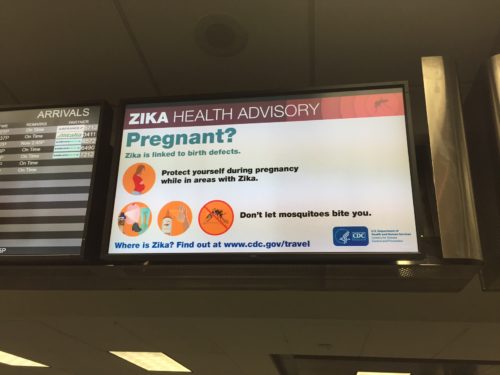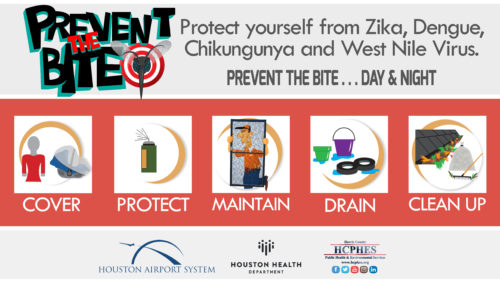My most recent “At the Airport” column for USA TODAY takes a look at how airports are working to educate travelers about the Zika virus – and make sure airport grounds don’t become another breeding ground for the virus.
Shops and newsstands, including those run by the Hudson Group in Chicago O’Hare, Seattle-Tacoma and Orlando International Airports, are making sure to carry several brands of insect repellant, including OFF! Deep Woods and Cutter.
At Miami International Airport, an advisory (in English and Spanish) from the Centers for Disease Control is on display in passport clearance areas and airport employees have been issued cards instructing them how to recognize and respond to passengers with communicable diseases, including Zika.
At Fort Lauderdale-Hollywood International Airport, Zika prevention messages from the CDC (in English and Spanish) are front and center right next to many flight display screens.
And at Hartsfield-Jackson Atlanta International Airport, signs have been placed throughout the airport, at the U.S. Customs area and in Baggage claim alerting travelers about the Zika virus and offering tips on protection and prevention measures. The airport has also made sure EPA-registered insect repellents are available for purchase in airport newsstands.
Orlando International Airport and both airports in Houston have Zika virus plans in place as well.
“Working in conjunction with our community partners, we feel these steps are not only appropriate but necessary to demonstrate our efforts at protecting our passengers and employees,” Orlando International said in a statement that outlined its plan.
And, among the strategies in place at the Houston airports are reminders to employees of the “4 D’s”: Drain (eliminate standing water); Dress (wear long sleeves, pants and socks); Dusk/Dawn (avoid these peak mosquito times) and DEET (use proper repellants).
What else do you need to know if you are heading somewhere where cases of the Zika virus have been confirmed?
“Bring plenty of mosquito repellent, long shirts and pants, and a full-coverage hat,” advises Julia Cosgrove, AFAR’s editor in chief. “Avoid areas where there’s standing water. And, if you are on the coast, stay close to the beach where there’s wind and relatively few mosquitoes.”



